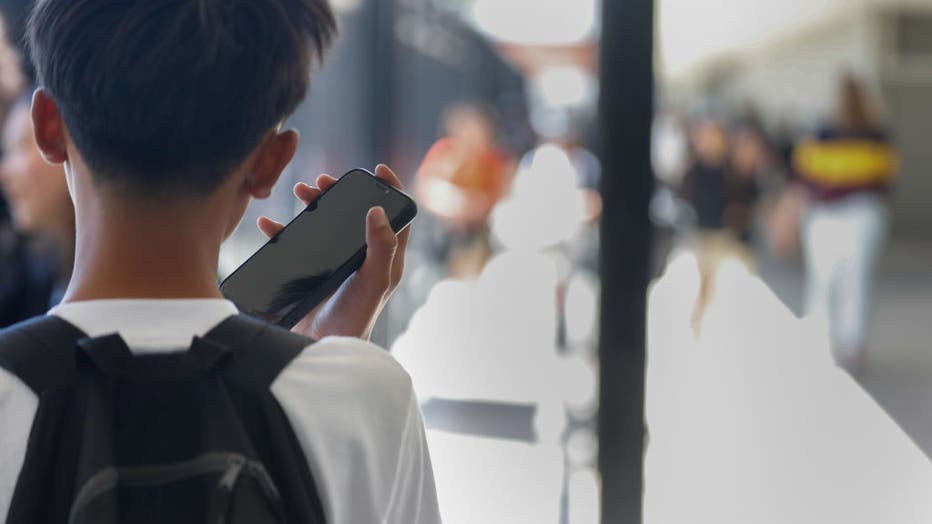Virginia adopts statewide 'bell-to-bell' cell phone ban in public schools
Virginia adopts statewide 'bell-to-bell' cell phone ban
The Virginia Department of Education has released its final guidance on a "bell-to-bell" cell phone-free policy for K-12 public schools across the state, in response to Governor Glenn Youngkin’s Executive Order 33. FOX 5's Shomari Stone has the story.
The Virginia Department of Education has released its final guidance on a "bell-to-bell" cell phone-free policy for K-12 public schools across the state, in response to Governor Glenn Youngkin’s Executive Order 33.
This new policy is designed to minimize distractions and foster a better learning environment for students by limiting cell phone use during the school day.
The cell phone-free policy defines "bell-to-bell" as the period from the first bell at the start of the school day to the final bell at dismissal. This includes time during lunch and between classes. According to the VDOE, phones must be turned off and stored away during this time to ensure students remain focused on their education.
"We are so thankful for the collaborative input from families, educators, and students on such a critical challenge for our young people," said Lisa Coons, Superintendent of Public Instruction. "Virginians helped shape the final guidance, and we look forward to continuing our work with families and educators to ensure every student can have a Cell Phone-Free Education."
RELATED: Virginia Department of Education holds first 'cell phone free education' meeting
The final guidance was shaped by extensive feedback from nearly 6,000 public comments, as well as input from over 1,160 Virginians during 21 stakeholder meetings and public conversations.
The public’s input reinforced the need for the policy, with many noting that cell phones often distract students and disrupt learning.
Read the Virginia Department of Education Cell Phone-Free Education Guidance
A recent poll by The Washington Post and George Mason University’s Schar School of Policy and Government shows that 69% of Virginia parents support cell phone-free education, including the restrictions during lunch and class breaks.
Governor Youngkin emphasized the importance of the new policy in his statement, saying, "This guidance from the Virginia Department of Education is an important step towards creating a healthier learning environment where students can receive a quality education free from harmful distractions."
The policy includes specific provisions for students with medical needs. Students requiring phone-based health monitoring apps may qualify for a medical exemption, which will be included in their Individualized Education Plan, 504 plan, or health care plan.
The guidance also addresses concerns from parents about communication during school emergencies. It outlines best practices for schools to keep parents informed during both emergency and non-emergency situations, ensuring communication remains clear and consistent.
What's next?

Governor Youngkin has tasked several state agencies, including the Secretary of Education and the Virginia Center for School and Campus Safety, to help school divisions enhance their emergency communication plans.
School divisions are expected to review and, if necessary, update their cell phone policies by January 1, 2025, to align with the state’s guidance. Schools are also encouraged to consider additional measures beyond the basic requirements.
To further raise awareness about the mental health effects of cell phones and social media, First Lady Suzanne S. Youngkin and psychologist Dr. Jonathan Haidt will host a statewide conversation on Sept. 19 to discuss the importance of the cell phone-free initiative and strategies for families.
School leaders will also receive an Administrator’s Toolkit to assist with policy implementation, and $500,000 in microgrants will be made available to support these efforts.
"This guidance reflects our commitment to creating a safer and more focused learning environment for all students," said Governor Youngkin.
The Source
Information for this story was provided by the Virginia Department of Education. This story was reported from Washington, D.C.

